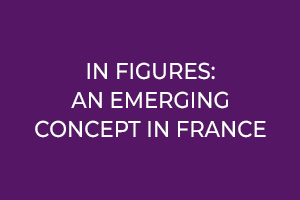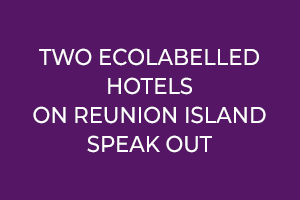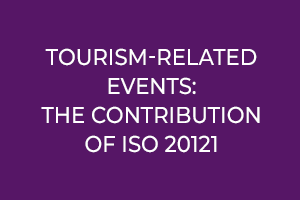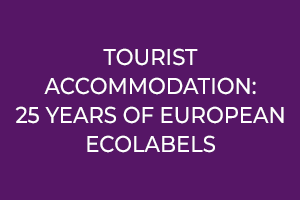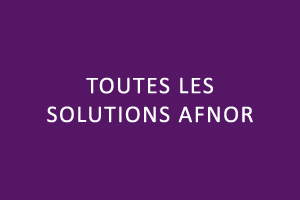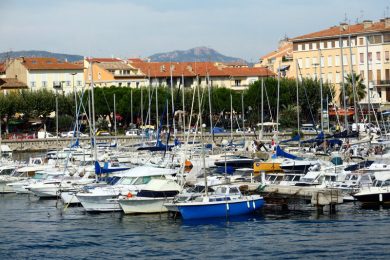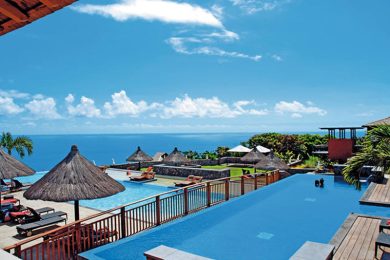Sustainable tourism: all the labels, standards and certifications you need to take action
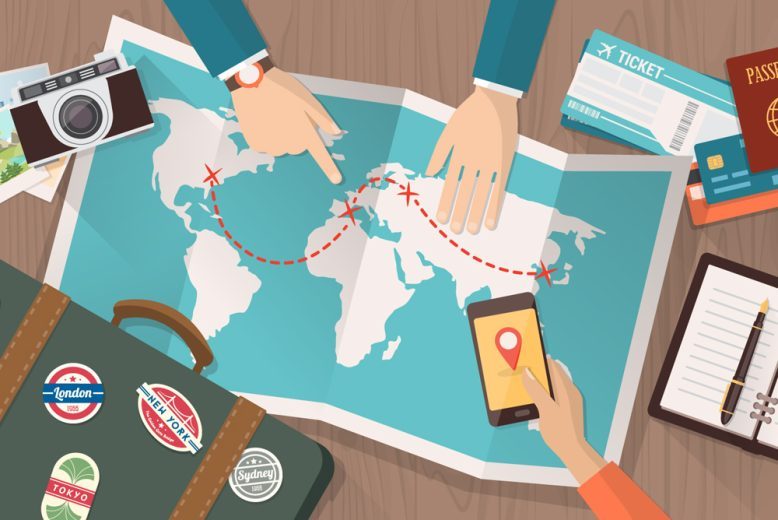
Nearly one human being in five leaves his or her place of residence temporarily… just for the pleasure of visiting another! In 2016, tourism grew by a further 4% worldwide, according to the World Tourism Organization (UNWTO). Similar growth is expected this year. But at this rate, can the planet keep up? Tourism means carbon-intensive travel, the disruption of natural environments and the massive production of waste of all kinds… Are tourism and sustainable development compatible? On Friday June 2, the International Day for Responsible Tourism, the AFNOR group is asking the question and proposing solutions based on voluntary standards.
Guidelines and best practices
As Grégory Berthou, head of development for the sports and leisure sector at AFNOR Normalisation, explains, “In an age of globalization and new technologiestourists are changing their behavior. Ethically aware, they want greater transparency, especially from professionals. This can also be seen in the way standards are drawn up: sustainable development is increasingly present. “. The Group’s core business, standards provide the framework: drawn up by all the professionals and consumers in the sector concerned, they act as instructions for use, providing guidelines and best practices for instilling quality and sustainability in products and services.
In the tourism sector, two international standards are due to be published by 2018 or 2019. The first, initiated by Brazil and piloted by the TC 228 working group of ISO (the International Organization for Standardization), concerns sustainable tourism. ” It will provide a framework for the responsible management system of hotel infrastructures, with criteria relating in particular to the environment and societal aspects,” explains Dori Nissan, project manager at AFNOR Normalisation. This standard is supported above all by countries whose economies are heavily dependent on tourism, such as Ecuador and the Dominican Republic. However, some countries (seven, including France) are skeptical. They feel that existing tools (ISO 9001 framework standards for quality, ISO 14001 for the environment, etc.) are sufficient. However, ISO standards have such a resonance that it is quite possible that, in time, this new text will also be adopted by French tourism professionals.
Sustainable adventure tourism
The second forthcoming ISO standard concerns adventure tourism. ” The players in this market are the most directly concerned by sustainable development, as the activities on offer often involve working with local populations, wildlife and nature ,” explains Fabrice del Taglia, Managing Director of Nomade Aventure and Chairman of the AFNOR standardization commission responsible for the subject. Very simple and without equivalent in France, the future voluntary standard will enable players in the sector to harmonize their sustainable development practices. In a way, to speak the same language. ” The ISO standard project, initiated by Portugal, was enriched by the French players, who were very involved, with social, economic and environmental requirements,” comments Fabrice del Taglia. The text will give international scope to the standards in force in this market segment, including the ATR (Agir pour un Tourisme Responsable) label, created by the association of the same name and held by a dozen adventure tourism professionals.
The need for ethics in the tourism sector, whatever the branch, is thus confirmed. This is also borne out by the recommendations issued at the end of April 2017 by the World Committee on Tourism Ethics (an offshoot of the UNWTO) aimed at properly collecting and impartially publishing online reviews from customers of travel sites. And let’s not forget TC 228’s landmark work on scuba diving, which takes sustainable development into account, or its work on tourist sites accessible to the disabled.
The European Ecolabel, 25 years of certification
2017 also marks the 25th anniversary of the European ecolabel, famous for its flower-shaped logo. Recognized in all member countries of the European Union, this distinctive sign, affixed to products and services that request it, is issued in France by AFNOR Certification, following an audit. And all tourist accommodation services are eligible: hotels, campsites, vacation villages, gîtes and B&Bs. Of the more than one thousand service providers on the European market with this label, France leads the way, with 335 holders to date. ” This anniversary coincides with a new European decision, validated last January, which changes the reference framework on which the ecolabel is based,” explains Laure Garcia, sales engineer specializing in the tourism market at AFNOR Certification.
Among the evolutions: ” Tourist and camping accommodation now coexist, as their respective criteria are very similar. The decision to award the label focuses on the main criteria impacting the environment, reorganized for greater clarity. For some, the level of requirement increases, while for others it becomes more progressive. A social component has been added, and the focus is on equipment efficiency and the fight against food waste. Lastly, following other sustainable development initiatives (such as ISO 14001) is valued. “explains Laure Garcia.
GET CERTIFIED
European ecolabel for tourist accommodation
Teamwork and business management
Achieving certification often requires support(see the Gironde example). AFNOR’s regional delegations (Bretagne, Pays-de-la-Loire, Auvergne-Rhône-Alpes, Réunion, Guadeloupe, etc.), in association with institutional partners, are taking action in this area. For example, at the end of 2015, the Nantes-Saint-Nazaire CCI, with the support of the regional council, helped twenty professionals to obtain eco-labels. The desire to embark on this path depends above all on the sensitivity of management, and it’s a team effort,” stresses Annie Santerre, tourism advisor at this CCI, with this important observation: ” Some structures see this approach as purely financial business management, since it allows waste or energy consumption to be reduced, and therefore ultimately costs. ” But everyone wins! ” The Hôtel Amiral in Nantes even displays the daily water and electricity consumption of each room at reception. It’s empowering! And economically: from 2011 onwards, by offering a breakfast buffet with no small containers and made from local produce, the operator made money. “continues Annie Santerre.
More and more tourist offices are also getting in on the act. Jérôme Lay, manager of the Seignanx resort in the Landes region of France, describes himself as a passionate advocate of sustainable tourism. Our mission is to preserve and share our territory, which boasts a highly diverse natural heritage. We started from scratch in 2008, with no example to follow. Thanks to a series of assessments carried out with elected representatives and tourism professionals, we created a very simple charter for accommodation providers, which was subsequently extended to include surf schools, tourist attractions, equestrian centers, etc. Logically, we suggested that accommodation providers go one step further and work with us to obtain the European ecolabel. “he says. Today, one vacation village and two campsites carry the European ecolabel, representing a third of the accommodation on offer. ” And some tourists specifically ask for an eco-labelled campsite! ” adds Jérôme Lay. The professionals who are taking the plunge are delighted, like Benoît Morin, manager of Éthic Étapes Val-de-Loire in Blois.
Mulching mower and energy-generating bicycles
The same is true of campsites. Éric Bourgon, manager of La Garangeoire (Vendée), which also holds the European ecolabel, welcomes 1,500 customers each season: ” Everyone is involved: customers, suppliers and staff (16 permanent employees and 100 temps in summer). Since our certification in 2011, we have purchased two electric cars and eleven electric buggies, invested in an electric chainsaw and an electric snow blower, not to mention a mulching mower, which hbuys the small grass and puts it back on the lawn, forming a protective mulch against drought and a natural fertilizer,” he describes. He continued: ” We are one of only two campsites in France to have installed a Fonteko. This zero-waste terminal features a self-service water fountain and a 100% natural detergent fountain. This summer, we plan to add a intelligent sorting terminal that opens the right trapdoor according to the barcode. ”
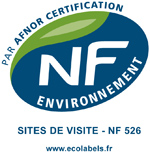 In addition to the European ecolabel, other certifications are increasingly winning over tourism operators keen to promote their actions. These include AFAQ Ports propres, which is well established in Provence-Alpes-Côte-D’azur, and NF Environnement “Sites de visite“, which was awarded to the Proumeyssac chasm (Dordogne) at the end of 2016. According to its director, Alain Francès, ” certification enables regular monitoring and encourages us to improve our performance, particularly in terms of energy consumption and pollution “.
In addition to the European ecolabel, other certifications are increasingly winning over tourism operators keen to promote their actions. These include AFAQ Ports propres, which is well established in Provence-Alpes-Côte-D’azur, and NF Environnement “Sites de visite“, which was awarded to the Proumeyssac chasm (Dordogne) at the end of 2016. According to its director, Alain Francès, ” certification enables regular monitoring and encourages us to improve our performance, particularly in terms of energy consumption and pollution “.
But the main principle is that of continuous improvement. At the chasm site, six energy-generating bicycles were installed in April 2017. The goal? Volunteer visitors pedal to produce the equivalent of the energy consumed during their visit. Fun… and educational! Alain Francès’ latest projects include replacing some of the floodlights in the cave with LEDs, replacing the heating equipment with energy-efficient models, and installing a medium-power recharging point for two electric vehicles.
GET CERTIFIED
NF Environnement Visitor sites
Through their day-to-day actions, these professionals demonstrate the value and benefits of obtaining and then maintaining a distinctive sign that materializes, with the eye of a third-party certifier, their commitment to sustainable tourism. Customers (and the planet) thank them!
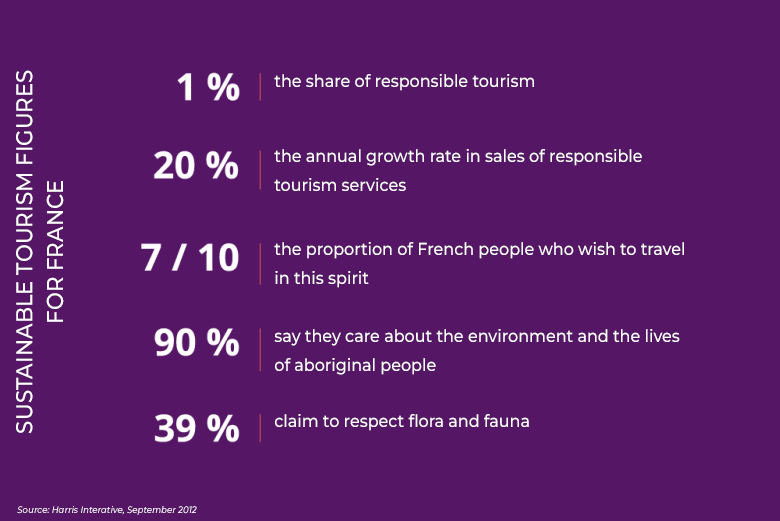
Certification assignment in Gironde
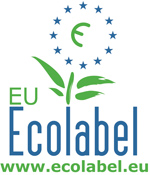 To celebrate 25 years of the European ecolabel, ADEME has launched a call for projects closing on May 31, 2017. The aim is to help tourist accommodations obtain this certification with financial assistance. Five regions responded to the call, including Nouvelle-Aquitaine, which already has the highest number of certified employees. ” On June 2, four press conferences will be held throughout the region,” explains Muriel Lacroix, development engineer at AFNOR’s regional office. “The one in Bordeaux aims to launch the collective operation for Gironde, led by Gironde Tourisme, with the European ecolabel as its scope, but also NF Environnement – Sites de visites certification. “Four workshops have been organized to present the project, the last one in early September, in partnership with tourist offices. At the start of the new school year, training in the reference manuals will be launched, and then support will begin. Ten hosts and visitor sites have already come forward. For further information, please contact See the email
To celebrate 25 years of the European ecolabel, ADEME has launched a call for projects closing on May 31, 2017. The aim is to help tourist accommodations obtain this certification with financial assistance. Five regions responded to the call, including Nouvelle-Aquitaine, which already has the highest number of certified employees. ” On June 2, four press conferences will be held throughout the region,” explains Muriel Lacroix, development engineer at AFNOR’s regional office. “The one in Bordeaux aims to launch the collective operation for Gironde, led by Gironde Tourisme, with the European ecolabel as its scope, but also NF Environnement – Sites de visites certification. “Four workshops have been organized to present the project, the last one in early September, in partnership with tourist offices. At the start of the new school year, training in the reference manuals will be launched, and then support will begin. Ten hosts and visitor sites have already come forward. For further information, please contact See the email
3 QUESTIONS FOR BENOIT MORIN, MANAGER OF ETHIC ETAPES VAL-DE-LOIRE, IN BLOIS
 Your establishment was originally a young workers’ hostel with a social vocation. How did you come to embrace ecology and apply for the European Ecolabel?
Your establishment was originally a young workers’ hostel with a social vocation. How did you come to embrace ecology and apply for the European Ecolabel?
Our commitment dates back to 2010, when the buildings had to be refurbished. Everything that could be done to improve environmental impact was included in the specifications. Windows have been replaced, external insulation installed, etc. The work involved raising awareness among the team’s 26 employees, studying the criteria of the European ecolabel applied to tourist accommodation, and reviewing what needs to be changed in our behavior. We were certified in March 2015 and are very proud to be the first such establishment in Blois! A label means continuous improvement. We take our time as we move forward.
What improvements have you made?
We have drawn up an annual action and awareness-raising program for our staff, which goes beyond the criteria of the label. For example, no more 5-liter buckets or household bleach. Today’s cleaning products are less aggressive, and half-liter containers mean less packaging and lighter loads. Waste sorting is offered to customers and practiced by the team. We used to take out six or seven 100-liter trash bags a day, but now we only take out one, so much so that the garbage collectors have asked us if we’re going to close! We use the food waste to make compost, which is spread on green spaces and at home by employees who wish to do so. Weeding is carried out manually and waste is burned. We also worked with the cook to reduce food waste, and introduced products from short distribution channels with quality labels.
Are the results there?
They are difficult to measure. Customers often praise our staff for the quality of their accommodation and food. They may be interested in eco-labeling, but it’s not their primary motivation. That said, we’ve already noticed that some school groups choose us because of our ecological approach!
AFNOR solutions
Drawing up and monitoring standards
Buy a standard
